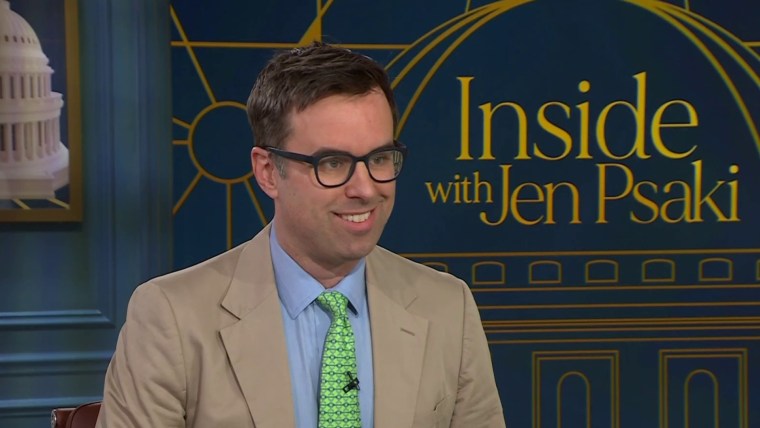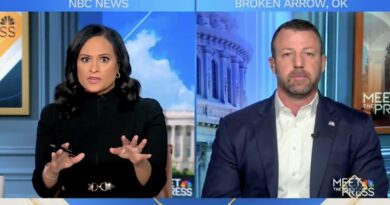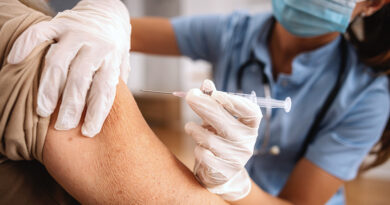Opinion | A vaccine expert’s disinterest in debating RFK Jr. makes sense
Vaccine scientist Peter Hotez has turned down an offer from podcast titan Joe Rogan to debate anti-vaxxer and Democratic presidential candidate Robert F. Kennedy Jr. on Rogan’s show. Hotez’s “no thanks” has triggered widespread disparagement from high-profile tech bros and antivaxxers, but his position is a reasonable one. Debating Kennedy would not enlighten the public, but it would serve instead to degrade the public’s understanding of vaccines and public health.
Rogan’s offer came after Hotez criticized Rogan for spreading “misinformation” on Twitter and shared a Vice article that characterized Rogan’s recent interview of Kennedy on his show as “an orgy of unchecked vaccine misinformation, some conspiracy-mongering about 5G technology and wifi, and, of course, Rogan once again praising ivermectin, an ineffective faux COVID treatment.”
Rogan responded on Twitter, “Peter, if you claim what RFKjr is saying is ‘misinformation’ I am offering you $100,000.00 to the charity of your choice if you’re willing to debate him on my show with no time limit.” Hotez replied by telling him he had his contact information, signaling, according to Rogan, that he’d be willing to come on to Rogan’s show alone. (Which he has done in the past.) But for now Hotez is declining to debate Kennedy.
Not every debate is meaningful, and not every debate leaves the public better off.
A number of influential tech entrepreneurs have pounced on Hotez’s decision not to debate as a sign of weakness. Twitter CEO Elon Musk said Hotez was “afraid of public debate, because he knows he’s wrong.” A number of other tech figures jumped in and added offers for more charity donations in an attempt to persuade Hotez to debate Kennedy, some mocking him as scared of a face-off. Hotez has subsequently been the subject of an online harassment campaign, in which users have falsely accused him of being financially compromised, and some activists apparently even appeared outside his house demanding he debate Kennedy.
Hotez’s dismissal of Rogan’s invitation might be disappointing to some, but it is wholly defensible. I generally favor the idea of debate across the political spectrum as an essential component of democratic life, including debating extremists on various issues. But not every debate is meaningful, and not every debate leaves the public better off.
In this case, there is an extraordinary asymmetry between the two proposed interlocutors. Hotez is a renowned scientist, a professor of molecular virology at Baylor College of Medicine who was nominated for a Nobel Peace Prize for helping develop a low-cost Covid-19 vaccine for global use. Kennedy, on the other hand, has a background in law and has no technical knowledge of how vaccines or immune systems or public health works. Hotez works in a field where his claims are scrutinized and challenged by expert peers; his entire reputation is at stake any time he makes claims about what vaccines do and don’t do. Kennedy is an activist who has made a name for himself as a peddler of widely debunked claims that vaccines cause autism, has spread the preposterous claim that Bill Gates was using vaccines to insert chips into people, and has described public health measures taken to reduce the spread of Covid-19 as worse than the Holocaust.
In other words, what Rogan is proposing is a debate between someone who has respect for the quest for truth and someone who doesn’t. Hotez would be guided by an expert appraisal of empirical reality, while Kennedy would spread misinformation and disinformation about vaccines. How would that be edifying for the public?
It would be one thing if Hotez were asked to debate another vaccine scientist who had well-grounded and good faith differences in opinion from Hotez on the question of the efficacy of vaccines or the virtue of vaccine mandates. People could learn from that. But in the case of a Hotez-Kennedy debate, a lot of people would just walk away from the exchange having been subjected to a ton of spin from someone with an abysmal track record on telling the truth about vaccines.
Another issue is that Rogan’s podcast is a distinctly poor forum for such a debate. Consider how Rogan treated Kennedy’s outlandish claims about vaccines and other public health matters on his show Thursday — with constant deference and irresponsible credulity. At one point during the three-hour interview, Kennedy offhandedly made the claim that Wi-Fi allows toxins to enter the brain. When Rogan asked him to explain how that worked, Kennedy said it was “beyond my expertise.” Rogan then had a producer attempt what was apparently meant to look like a fact check by …. Googling Kennedy’s claim and then immediately reciting sentences from the first website Google flagged. (He did not bother to cite his sources.) Rogan concluded, “We gotta get rid of Wi-Fi.”
Imagine, then, Rogan moderating a debate between Hotez and Kennedy. An effective moderator doesn’t just take the position of neutrality or centrism; that moderator does tons of homework and tries to hold participants accountable for backing up their claims. Rogan, who himself has shown interest in all kinds of conspiracy theories about medicine and public health, is the precise opposite of the kind of moderator to handle someone like Kennedy. What Rogan would do is effectively lend credibility to Kennedy’s nonsense while casting doubt on Hotez without knowing what he was talking about.
None of this is to say that Kennedy’s claims should never be engaged. He’s unfortunately polling well enough as a Democratic presidential candidate that the media, medical experts and political opponents should be prepared to refute his claims, particularly as he continues to evolve into one of the most prominent avatars of vaccine skepticism in American politics today. That kind of fact-checking is already happening. But for the time being, the best way to do that is in the form of combating misinformation, not a forum where the public is misled to believe that Kennedy’s views on vaccines are credible or deserve equal billing with someone for whom the study of vaccines is a specialty.



